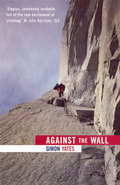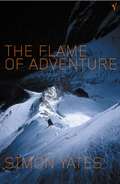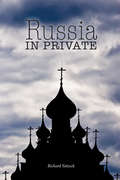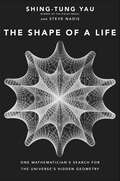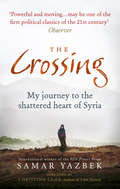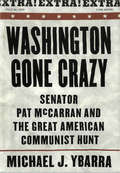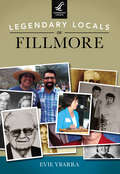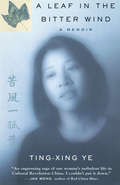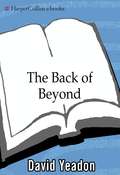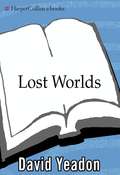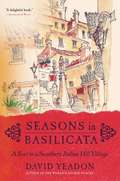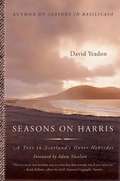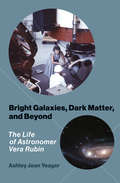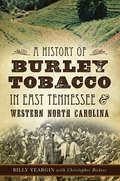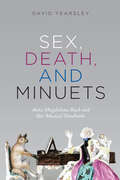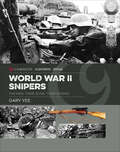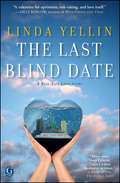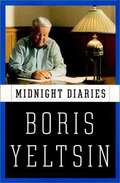- Table View
- List View
Against The Wall
by Simon YatesSimon Yates is 'the one who cut the rope' in Joe Simpson's award-winning account of their epic struggle for survival in Touching the Void. Afterwards, Yates continued mountaineering on the hardest routes. Perhaps the most testing of all was one of the world's largest vertical rockfaces, the 4, 000-ft East Face of the Central Tower of Paine in Chile. Battered by ferocious storms and almost crippled with fear just below the summit, Yates and his three companions are forced into a nightmare retreat. After resting in a nearby town, they return to complete the climb, but Yates knows he still has to face one of life's greatest challenges...
Flame Of Adventure
by Simon YatesSimon Yates, author of Against the Wall, takes us back to his early years as a climber - the escapades and excitement of a young life lived on the edge and for the moment, when experience was all-important and dramatic achievements and failures came as naturally as the hair-raising risks themselves.A mountaineering travelogue of dazzling variety, The Flame of Adventure moves from the camaraderie of deprived Russian climbers in the little-known peaks in the Tien Shan to the awesome experience of the North Face of the Eiger, from a rumbustious motorbike ride across Australia with a psychotic lorry driver. We meet a remarkable gallery of climbers, from Doug Scott to Joe Simpson, and, when not exploring high mountains, we enter the bizarre world of rope access workers: mavericks balancing high above building sites on the London skyline.
Russia in Private
by Richard YatzeckFrom the very beginning of Russia's history, discord has been prevalent thanks to the ruinous jealousy of the nobles, the Pecheneg and Tatar invasions, and lost wars (or brutally costly victories, as in 1812 or 1945). Autocratic government with serfdom, famine, and gangsterism have been the Russian lot. Two questions: "Who is to blame?" and "What is to be done?", have plagued life in that one-sixth of the world's land surface since its conception, roughly 988 AD. During ten tours of Russia, between 1961 and 1997 (nearly thirty years in all), Richard Yatzeck was generously included in the political, kitchen table conversations concerning these very questions. Public discussion of such matters has never been safe. Russia in Private is an attempt to plumb the abyss between Russian and Western life, and explain how Russians understand and bear their history.
The Shape of a Life: One Mathematician's Search for the Universe's Hidden Geometry
by Shing-Tung Yau Steve NadisA Fields medalist recounts his lifelong effort to uncover the geometric shape—the Calabi-Yau manifold—that may store the hidden dimensions of our universe.Harvard geometer Shing-Tung Yau has provided a mathematical foundation for string theory, offered new insights into black holes, and mathematically demonstrated the stability of our universe. In this autobiography, Yau reflects on his improbable journey to becoming one of the world’s most distinguished mathematicians. Beginning with an impoverished childhood in China and Hong Kong, Yau takes readers through his doctoral studies at Berkeley during the height of the Vietnam War protests, his Fields Medal–winning proof of the Calabi conjecture, his return to China, and his pioneering work in geometric analysis. This new branch of geometry, which Yau built up with his friends and colleagues, has paved the way for solutions to several important and previously intransigent problems.With complicated ideas explained for a broad audience, this book offers not only insights into the life of an eminent mathematician, but also an accessible way to understand advanced and highly abstract concepts in mathematics and theoretical physics.“The remarkable story of one of the world’s most accomplished mathematicians . . . Yau’s personal journey—from escaping China as a youngster, leading a gang outside Hong Kong, becoming captivated by mathematics, to making breakthroughs that thrust him on the world stage—inspires us all with humankind’s irrepressible spirit of discovery.” —Brian Greene, New York Times–bestselling author of The Elegant Universe“An unexpectedly intimate look into a highly accomplished man, his colleagues and friends, the development of a new field of geometric analysis, and a glimpse into a truly uncommon mind.” —The Boston Globe“Engaging, eminently readable. . . . For those with a taste for elegant and largely jargon-free explanations of mathematics, The Shape of a Life promises hours of rewarding reading.” —American Scientist
The Crossing: My journey to the shattered heart of Syria
by Samar Yazbek'ONE OF THE FIRST POLITICAL CLASSICS OF THE 21st CENTURY'- Observer'EXTRAORDINARILY POWERFUL, POIGNANT AND AFFECTING. I WAS GREATLY MOVED' Michael PalinFOREWORD BY CHRISTINA LAMBJournalist Samar Yazbek was forced into exile by Assad's regime. When the uprising in Syria turned to bloodshed, she was determined to take action and secretly returned several times. The Crossing is her rare, powerful and courageous testament to what she found inside the borders of her homeland.From the first peaceful protests for democracy to the arrival of ISIS, she bears witness to those struggling to survive, to the humanity that can flower amidst annihilation, and why so many are now desperate to flee.
Washington Gone Crazy
by YbarraIN THIS SWEEPING, monumental work of American history, journalist Michael J. Ybarra tells the story of Senator Pat McCarran’s extraordinary career for the first time, and he vividly re-creates a passionate era of politics that reshaped America and echoes to this day. Brilliantly researched and energetically written,Washington Gone Crazymakes a significant new contribution to our understanding of the United States in the twentieth century. McCarran was one of the most shrewd and powerful — and vindictive — lawmakers ever to sit in Congress. Joe McCarthy gave his name to the cause of zealous anti-Communism, but it was McCarran, a lifelong Democrat, who actually wrote the laws, held the hearings, and bullied the State and Justice Departments into doing his bidding. McCarran was consumed with looking for Communists in Washington and his obsession almost consumed the country. The son of illiterate Irish immigrants, McCarran was born in 1876 in Nevada, where he grew up to be a sheepherder who taught himself the law around the campfire, becoming a legendary defense attorney and judge. After struggling for years against the local Democratic political machine, McCarran rode Franklin Roosevelt’s landslide into the U. S. Senate in 1932 — and broke ranks with Roosevelt during the New Deal’s first week. But it was President Harry Truman who would become McCarran’s real nemesis. A master of parliamentary procedure, McCarran turned his Senate Judiciary Committee into a virtual government within the government. McCarran worked with J. Edgar Hoover to undermine the Truman Administration before McCarthy even got to Washington. He created the most far-reaching anti-sedition law ever enacted in America (the McCarran Internal Security Act), which filled Ellis Island with immigrants alleged to be subversives and set up concentration camps to hold suspected traitors in the case of a national emergency. McCarran’s Senate Internal Security Subcommittee cowed the State Department into sacrificing the careers of diplomats accused of helping the Communists take over China. McCarran virtually blackmailed more than one attorney general into carrying out his policies. From Capitol Hill to the United Nations, from union halls to Hollywood, McCarran’s wrath broke careers and lives and ultimately, in a self-destructive fit of pique, cost his party control of the Senate. Ybarra’s even-handed narrative shows that McCarran was ultimately half right: There really were Communists in Washington — but it was the hunt for them that did the real damage.
Legendary Locals of Fillmore
by Evie YbarraSince its beginning as a Southern Pacific Railroad town 100 years ago, Fillmore has been the setting of many legends and true tales, like the St. Francis Dam disaster, the 1994 earthquake, and the Hollywood film shoots. Joaquin Murietta hid in the hills, and the story of the T. Wallace More murder in Rancho Sespe in 1877 was the "murder of the century." Rancho Camulos, owned by the del Valle family until 1924, signifies the last of the Californios. Today, it is owned by the descendants of August Rubel. Tales of the sycamore tree abound, and it is an icon on Highway 126, as is the tower of the Sanitary Dairy, which was ordered from the Sears, Roebuck & Company in Chicago. Oil was discovered early in Shiells Canyon and brought Texaco to town. The fruit industry prospered, and Sunkist was welcomed. Hugh Warring installed indoor plumbing in the Piru Mansion. The likes of "Booty" Sanchez, Marcelino "Woody" Ybarra, Gene Wren, Kevin Gross, Jim Fauver, and Dorothy Shiells still influence the community.
Washington Gone Crazy: Senator Pat McCarran and the Great American Communist Hunt
by Michael J. YbarraStory of events leading up to the McCarthy excesses.
A Leaf in the Bitter Wind
by Ting-Xing YeOne of the best ways to understand history is through eye-witness accounts. Ting-Xing Ye's riveting first book, A Leaf in the Bitter Wind, is a memoir of growing up in Maoist China. It was an astonishing coming of age through the turbulent years of the Cultural Revolution (1966 - 1974). In the wave of revolutionary fervour, peasants neglected their crops, exacerbating the widespread hunger. While Ting-Xing was a young girl in Shanghai, her father's rubber factory was expropriated by the state, and he was demoted to a labourer. A botched operation left him paralyzed from the waist down, and his health deteriorated rapidly since a capitalist's well-being was not a priority. He died soon after, and then Ting-Xing watched her mother's struggle with poverty end in stomach cancer. By the time she was thirteen, Ting-Xing Ye was an orphan, entrusted with her brothers and sisters to her Great-Aunt, and on welfare. Still, the Red Guards punished the children for being born into the capitalist class. Schools were being closed; suicide was rampant; factories were abandoned for ideology; distrust of friends and neighbours flourished. Ting-Xing was sent to work on a distant northern prison farm at sixteen, and survived six years of backbreaking labour and severe conditions. She was mentally tortured for weeks until she agreed to sign a false statement accusing friends of anti-state activities. Somehow finding the time to teach herself English, often by listening to the radio, she finally made it to Beijing University in 1974 as the Revolution was on the wane -- though the acquisition of knowledge was still frowned upon as a bourgeois desire and study was discouraged. Readers have been stunned and moved by this simply narrated personal account of a1984-style ideology-gone-mad, where any behaviour deemed to be bourgeois was persecuted with the ferocity and illogic of a witch trial, and where a change in politics could switch right to wrong in a moment. The story of both a nation and an individual, the book spans a heady 35 years of Ye's life in China, until her eventual defection to Canada in 1987 -- and the wonderful beginning of a romance with Canadian author William Bell. The book was published in 1997. The 1990s saw the publication of several memoirs by Chinese now settled in North America. Ye's was not the first, yet earned a distinguished place as one of the most powerful, and the only such memoir written from Canada. It is the inspiring story of a woman refusing to "drift with the stream" and fighting her way through an impossible, unjust system. This compelling, heart-wrenching story has been published in Germany, Japan, the US, UK and Australia, where it went straight to #1 on the bestseller list and has been reprinted several times; Dutch, French and Turkish editions will appear in 2001.
Back of Beyond
by David YeadonTakes readers to some of the last unspoiled places on Earth, detailing the author's experiences searching for monkeys and turtles in the jungles of Costa Rica, hunting wild boar in Iran, exploring the Sahara, and more.
Lost Worlds
by David YeadonThe author of The Back of Beyond continues the chronicle of his odyssey into some of the farthest corners of the world, from the Mountains of the Moon in Zaire, to wilderness Tasmania, to the unknown regions of New Guinea.
Seasons in Basilicata
by David YeadonAward-winning travel writer and illustrator, David Yeadon embarks with his wife, Anne on an exploration of the "lost word" of Basilicata, in the arch of Italy's boot. What is intended as a brief sojourn turns into an intriguing residency in the ancient hill village of Aliano, where Carlo Levi, author of the world-renowned memoir Christ Stopped at Eboli, was imprisoned by Mussolini for anti-Fascist activities. As the Yeadons become immersed in Aliano's rich tapestry of people, traditions, and festivals, reveling in the rituals and rhythms of the grape and olive harvests, the culinary delights, and other peculiarities of place, they discover that much of the pagan strangeness that Carlo Levi and other notable authors revealed still lurks beneath the beguiling surface of Basilicata.
Seasons on Harris
by David YeadonThe Outer Hebrides of Scotland epitomize the evocative beauty and remoteness of island life. The most dramatic of all the Hebrides is Harris, a tiny island formed from the oldest rocks on earth, a breathtaking landscape of soaring mountains, wild lunarlike moors, and vast Caribbean-hued beaches. This is where local crofters weave the legendary Harris Tweed--a hardy cloth reflecting the strength, durability, and integrity of the life there. In Seasons on Harris, David Yeadon, "one of our best travel writers" (The Bloomsbury Review), captures, through elegant words and line drawings, life on Harris--the people, their folkways and humor, and their centuries-old Norse and Celtic traditions of crofting and fishing. Here Gaelic is still spoken in its purest form, music and poetry ceilidh evenings flourish in the local pubs, and Sabbath Sundays are observed with Calvinistic strictness. Yeadon's book makes us care deeply about these proud islanders, their folklore, their history, their challenges, and the imperiled future of their traditional island life and beloved tweed.
Bright Galaxies, Dark Matter, and Beyond: The Life of Astronomer Vera Rubin
by Ashley Jean YeagerHow Vera Rubin convinced the scientific community that dark matter might exist, persevering despite early dismissals of her work. We now know that the universe is mostly dark, made up of particles and forces that are undetectable even by our most powerful telescopes. The discovery of the possible existence of dark matter and dark energy signaled a Copernican-like revolution in astronomy: not only are we not the center of the universe, neither is the stuff of which we&’re made. Astronomer Vera Rubin (1928–2016) played a pivotal role in this discovery. By showing that some astronomical objects seem to defy gravity&’s grip, Rubin helped convince the scientific community of the possibility of dark matter. In Bright Galaxies, Dark Matter, and Beyond, Ashley Jean Yeager tells the story of Rubin&’s life and work, recounting her persistence despite early dismissals of her work and widespread sexism in science. Yeager describes Rubin&’s childhood fascination with stars, her education at Vassar and Cornell, and her marriage to a fellow scientist. At first, Rubin wasn&’t taken seriously; she was a rarity, a woman in science, and her findings seemed almost incredible. Some observatories in midcentury America restricted women from using their large telescopes; Rubin was unable to collect her own data until a decade after she had earned her PhD. Still, she continued her groundbreaking work, driving a scientific revolution. She received the National Medal of Science in 1993, but never the Nobel Prize—perhaps overlooked because of her gender. She&’s since been memorialized with a ridge on Mars, an asteroid, a galaxy, and most recently, the Vera C. Rubin Observatory—the first national observatory named after a woman.
Yeager: An Autobiography
by Chuck Yeager Leo JanosGeneral Chuck Yeager, the greatest test pilot of them all -- the first man to fly faster than the speed of sound... The World War II flying ace who shot down a Messerschmitt jet with a prop-driven P-51 Mustang... The hero who defined a certain quality that all hotshot fly-boys of the postwar era aimed to achieve: the right stuff. Now Chuck Yeager tells his whole incredible life story with the same "wide-open, full throttle" approach that has marked his astonishing career. What it was really like engaging in do-or-die dogfights over Nazi Europe. How after being shot over occupied France, Yeager somehow managed to escape. The amazing behind-the-scenes story of smashing the sound barrier despite cracked ribs from a riding accident days before. The entire story is here, in Yeager's own words, and in wonderful insights from his wife and those friends and colleagues who have known him best. It is the personal and public story of a man who settled for nothing less than excellence, a one-of-a-kind portrait of a true American hero.
Bob Flame Rocky Mountain Ranger
by Dorr G. YeagerThis is a classic novel of the early days of the National Park Service, when just what park rangers did was not known to many people. Thrilling mountain rescues, dangerous skirmishes with poachers and bootleggers, ski patrols high above timberline, It's just another day in the "office" for Bob Flame Rocky Mountain Ranger.
The Medieval Python: The Purposive and Provocative Work of Terry Jones (The New Middle Ages)
by R. F. Yeager Toshiyuki TakamiyaThis is a collection of essays by diverse hands engaging, interrogating, and honoring the medieval scholarship of Terry Jones. Jones' life-long engagement with the Middle Ages in general, and with the work of Chaucer in particular, has significantly influenced contemporary understanding of the period generally, and Middle English letters in particular. Both in film of all types - full-feature comedy (Monty Python and the Holy Grail) as well as educational television series for BBC, the History Channel, etc. (e.g., Medieval Lives) - and in his published scholarship (e.g., Chaucer's Knight, in original and revised editions, Who Murdered Chaucer?), Jones has applied his unique combination of carefully researched scholarship, keen intelligence, fearless skepticism of establishment thinking, and his broad good humor to challenge, enlighten and reform. No one working today in either Middle English studies or in period-related film and/or documentary can proceed untouched by Jones' purposive, provocative views. Jones, perhaps more than any other medievalist, can be said to be an integral part of what Palgrave deems the "common dialogue."
A History of Burley Tobacco in East Tennessee & Western North Carolina
by Billy Yeargin Christopher BickersBurley tobacco revolutionized the industry in east Tennessee and western North Carolina. What started from two farmers planting white burley in Greeneville ignited an agricultural revolution and significantly changed crops, production and quality. Burley transformed the tobacco industry with new cultivation techniques and a shift from dark and flue-cured tobacco. By the 1990s, burley tobacco production in the region had drastically declined, and it is a tradition that few local farmers still practice. Agricultural experts Billy Yeargin and Christopher Bickers take a nostalgic look at the historic rise of burley tobacco and its gradual decline.
Sex, Death, and Minuets: Anna Magdalena Bach and Her Musical Notebooks (New Material Histories of Music)
by David YearsleyAt one time a star in her own right as a singer, Anna Magdalena (1701–60) would go on to become, through her marriage to the older Johann Sebastian Bach, history’s most famous musical wife and mother. The two musical notebooks belonging to her continue to live on, beloved by millions of pianists young and old. Yet the pedagogical utility of this music—long associated with the sound of children practicing and mothers listening—has encouraged a rosy and one-sided view of Anna Magdalena as a model of German feminine domesticity. Sex, Death, and Minuets offers the first in-depth study of these notebooks and their owner, reanimating Anna Magdalena as a multifaceted historical subject—at once pious and bawdy, spirited and tragic. In these pages, we follow Magdalena from young and flamboyant performer to bereft and impoverished widow—and visit along the way the coffee house, the raucous wedding feast, and the family home. David Yearsley explores the notebooks’ more idiosyncratic entries—like its charming ditties on illicit love and searching ruminations on mortality—against the backdrop of the social practices and concerns that women shared in eighteenth-century Lutheran Germany, from status in marriage and widowhood, to fulfilling professional and domestic roles, money, fashion, intimacy and sex, and the ever-present sickness and death of children and spouses. What emerges is a humane portrait of a musician who embraced the sensuality of song and the uplift of the keyboard, a sometimes ribald wife and oft-bereaved mother who used her cherished musical notebooks for piety and play, humor and devotion—for living and for dying.
World War II Snipers: The Men, Their Guns, Their Stories (Casemate Illustrated Special)
by Gary Yee"Gary Yee takes what is already a well-researched deep dive into the specifics of sniper training, employment and equipment to a new level." - American Rifleman MagazineThousands of volumes have been published about World War II but relatively little attention has been given to the sniper. Drawing from memoirs, government documents and interviews, World War II Snipers incorporates eyewitness accounts to weave a comprehensive narrative of snipers in World War II. While certain common traits were shared among belligerents, each had its unique methodology for selecting and training snipers and, as casualties were high, their replacements. Drawn from hunters, competitive shooters, natural marksmen, outdoorsmen, city dwellers, farmers and veteran soldiers, they fought to assert local battlefield dominance and instill among their enemy a paralyzing fear. Sometimes admired and other times reviled by their own comrades because of the retaliation they drew, they were always too few in number. Their battlefield role, their victories and their defeats are retold here from neglected or forgotten sources. The scope of World War II Snipers is extensive with three chapters each on the major theaters of the war including Western Europe, Eastern Europe and the Pacific. This is supported by a lengthy chapter on the sniper rifles used by the snipers and their equipment.
Harriet Jacobs
by Jean Fagan YellinHarriet Jacobs's Incidents in the Life of a Slave Girl remains the most-read woman's slave narrative of all time. Jean Fagan Yellin recounts the experiences that shaped Incidents-the years Jacobs spent hiding in her grandmother's attic from her sexually abusive master-as well as illuminating the wider world into which Jacobs escaped. Yellin's groundbreaking scholarship restores a life whose sorrows and triumphs reflect the history of the nineteenth century, from slavery to the Civil War, to Reconstruction and beyond.
Harriet Jacobs
by Jean Fagan YellinHarriet Jacobs's Incidents in the Life of a Slave Girl remains the most-read woman's slave narrative of all time. Jean Fagan Yellin recounts the experiences that shaped Incidents-the years Jacobs spent hiding in her grandmother's attic from her sexually abusive master-as well as illuminating the wider world into which Jacobs escaped. Yellin's groundbreaking scholarship restores a life whose sorrows and triumphs reflect the history of the nineteenth century, from slavery to the Civil War, to Reconstruction and beyond.
The Last Blind Date
by Linda YellinA fun, charming memoir about a woman who falls in love, packs her bags, and starts over in the city that eats its young.
The Last Blind Date
by Linda YellinA fun, charming memoir about a woman who falls in love, packs her bags, and starts over in the city that eats its young.
Midnight Diaries
by Boris Yeltsin Catherine A. Fitzpatrick<P>Midnight Diaries is Boris Yeltsin's pithy, personal, and revealing account of the struggles and upheavals in Russia over the last several years, seen from the perspective of the man whose job it was to pull all the strings together. <P>Growing out of a series of late-night conversations between Mr. Yeltsin and his chief of staff, the book addresses with astounding candor subjects including: the real impact of the coup of 1991; the process of decision-making about Chechnya; Yeltsin's relationships with world leaders including Bill Clinton, Helmut Kohl, Jacques Chirac, Zhao Zemin, and Tony Blair; the real story behind the string of prime ministers he hired and then dismissed; the Russian economy and allegations of corruption; his own health; and his decision to retire from the presidency. <P>Vivid and direct in the style of Yeltsin himself, Midnight Diaries is an unprecedented look inside the tumultuous politics of a changing Russia. Its publication is an international publishing event.
